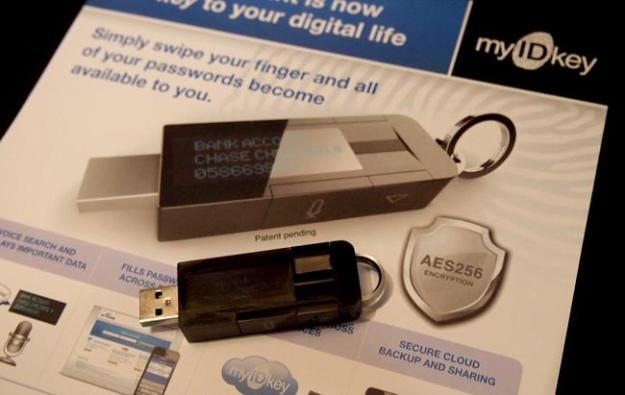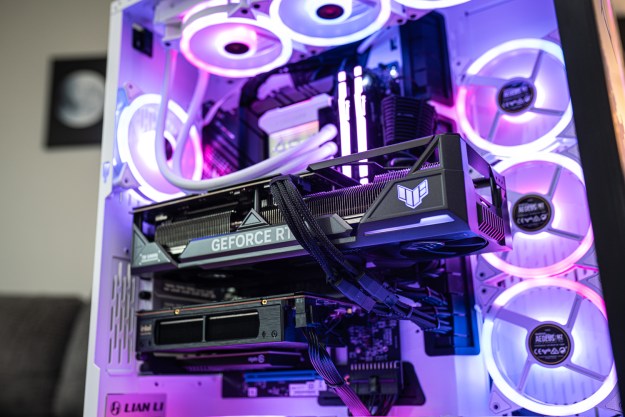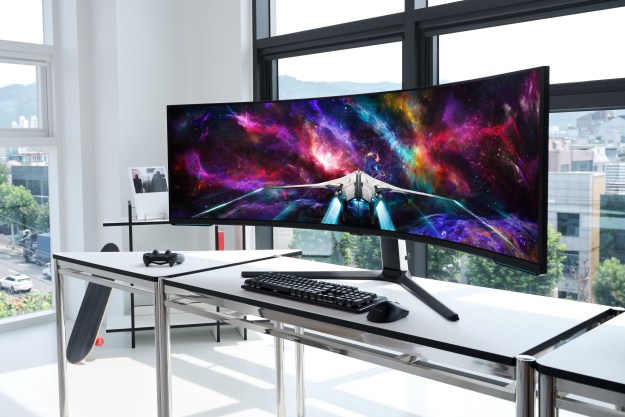
Following an overwhelmingly successful Kickstarter campaign in March, and getting three times the funding it asked for, the USB-sized “password depot” and encrypted flash storage, myIDkey, is just about ready for mass production. Arkami, the company behind the nifty little device, brought a pre-production unit of the myIDkey to the CEA Line Show in New York City this week, and we checked it out for ourselves.
As you can see in the above photo, the actual device is on the chunky side for a USB drive, but it’s easily pocketable. Since the company is still finalizing its cap design, CEO Ben Chen didn’t show us that portion of the device. That said, the myIDkey does have a little OLED screen that displays your passwords and ID numbers, as well as a fingerprint reader (like the ones you’d find on business laptops) that authenticates the user, preventing just any old person from getting access to the sensitive information stored on the drive.
To make it easy to navigate your data on the USB drive, you can press on the microphone button and look for the password by the company’s name (i.e. say “Amazon”), or you can scroll through the profiles stored on your device with the arrow button.

We saw a non-working unit of the myIDkey at the CEA Line Show, so we couldn’t give these features a test run. However, Chen gave us a quick tour of the mobile app that manages the content stored on the device. The app and the myIDkey can communicate wirelessly through Bluetooth or you can plug the device directly to a computer with a USB port to edit the login information and files you want to store on the device.

You can store both personal data and files on the myIDkey, which will be protected with military-level AES256 encryption that Chen said no one has been able to crack. Since the device requires your fingerprint to access the content stored on the drive, even if someone were to steal your myIDkey, they wouldn’t be able to open your files. Besides, after a set number of failed fingerprint access, the device will automatically wipe your content, and you can still retrieve your information if you’ve previously synced with the myIDkey cloud.
Arkami is taking pre-orders for the 16GB myKeyID. It’s available for $170 a pop at its website and will ship in September.


